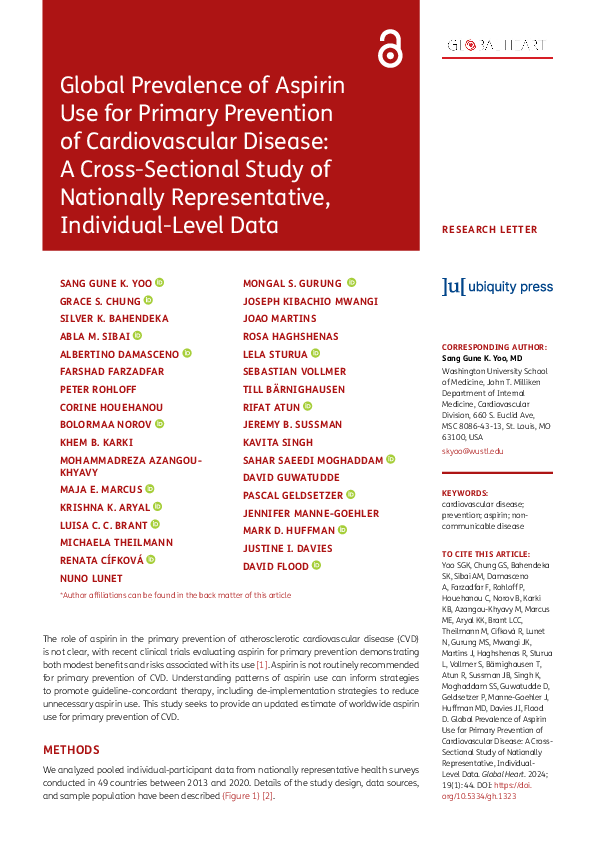Journal Article
Global Prevalence of Aspirin Use for Primary Prevention of Cardiovascular Disease: A Cross-Sectional Study of Nationally Representative, Individual-Level Data
Global Heart, 19 (1): 44
The role of aspirin in the primary prevention of atherosclerotic cardiovascular disease (CVD) is not clear, with recent clinical trials evaluating aspirin for primary prevention demonstrating both modest benefits and risks associated with its use [1]. Aspirin is not routinely recommended for primary prevention of CVD. Understanding patterns of aspirin use can inform strategies to promote guideline-concordant therapy, including de-implementation strategies to reduce unnecessary aspirin use. This study seeks to provide an updated estimate of worldwide aspirin use for primary prevention of CVD.




